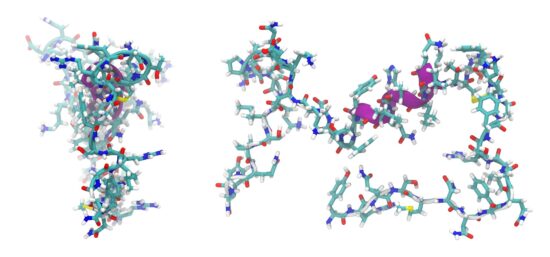Generative AI pipeline creates promising antimicrobial peptides
A new generative AI model has been developed by Wenqiang Chang and his team at Shandong University in China to rapidly generate diverse antimicrobial peptide structures for screening against treatment-resistant microbes. Antibiotic resistance is a significant threat to human health, with drug-resistant infections predicted to surpass cancer as the leading cause of death by 2050. The model simplifies training data based on 2.8 million peptides, allowing for the generation of new peptide sequences. The model uses a latent diffusion model to compress training data into numerical form, then extrapolates new peptides from this simplified data. The generated sequences are then filtered through a classification pipeline to identify the hits most likely to possess antimicrobial properties. Out of the 600,000 results, 40 were tested against fungal and bacterial pathogens, with 25 exhibiting antimicrobial properties. Safety profiles of the most potent peptides identified two candidates with potential for in vivo use, and antibacterial AMP-24 and antifungal AMP-29 were successfully used to treat microbial infections in mice.
AMR NEWS
Your Biweekly Source for Global AMR Insights!
Stay informed with the essential newsletter that brings together all the latest One Health news on antimicrobial resistance. Delivered straight to your inbox every two weeks, AMR NEWS provides a curated selection of international insights, key publications, and the latest updates in the fight against AMR.
Don’t miss out on staying ahead in the global AMR movement—subscribe now!







